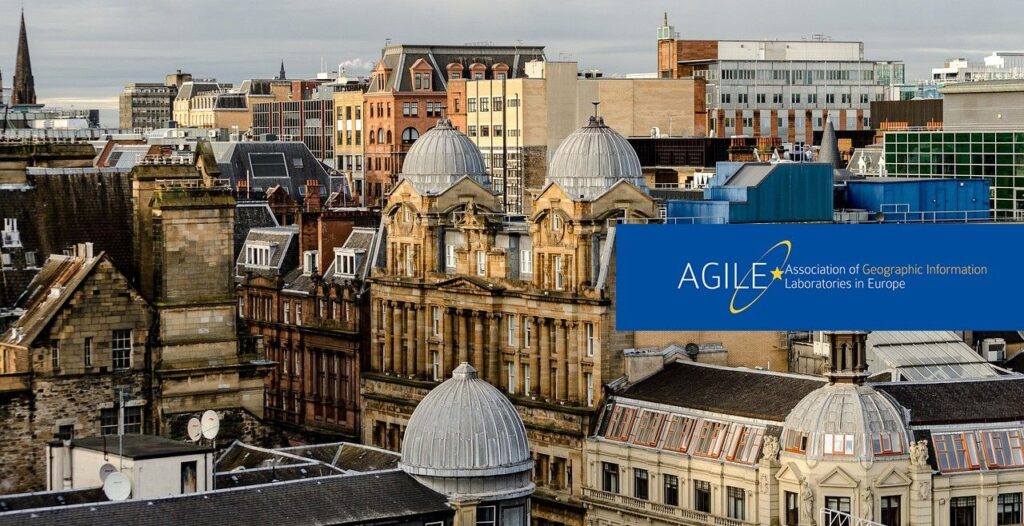“Geographic Information Science for a Sustainable Future” – The theme of this year’s conference held by the Association of Geographic Information Laboratories in Europe (AGILE) in Glasgow, UK, on 4-7 June 2024. Attendees of the AGILE 2024 conference will explore the crucial role of geographic information science (GIS) in the relationships between the environment, society, and the economy. We at HeiGIT are happy to announce that members of our team will be part of the AGILE 2024 conference, presenting their work in the form of a poster, a short paper and two workshops. The projects that will be presented were carried out in cooperation with GIScience, TdLab, UndercoverEisAgenten and ZGIS Salzburg Mobility Lab respectively.
In corporation with Johannes Fürle from GIScience, Christina Ludwig and Adam Rousell have prepared the poster titled “Navigating Heat Stress: Integrating Heat Stress Modelling and Routing to Assist Citizens and Planners”. This presentation illustrates the use of GIS in modeling pedestrian mobility’s response to heat stress. It delves into the methodology employed within the HEAL project, which encompasses routing and network analyses alongside the implementation of a sensor network for heat stress modeling. The outcome is a routing service designed to aid citizens in planning their daily routes while mitigating the effects of heat stress. To find out more about the project, please read the blogpost.
Daniel Kwakye has submitted a paper which explores the issue of “Data Quality of OpenStreetMap data for Industrial Sites in the Arctic”. This study scrutinizes the completeness, attribute completeness and currentness of OpenStreetMap (OSM) data pertaining to industrial sites in the Arctic region. The research explores the potential utility of OSM as a resource for assessing the release of industrial contaminants due to thawing permafrost.
In Anne Schauss’s workshop titled „Mapping with Communities: Contemporary Approaches and Challenges,“ participants will be introduced to a diverse array of applications of participatory mapping. Tailored for individuals engaged in digital technologies, methodological development, or community interaction, the workshop aims to enhance support for community-led mapping endeavors. Discussions will center around both existing and emerging challenges within communal mapping and GIScience, providing a platform for sharing experiences and insights. To participate, those interested are encouraged to submit their extended abstracts by May 20 to mappingwithcomm@glasgow.ac.uk. For further information, please read the blogpost.
Adam Rousell and Christian Werner (ZGIS Salzburg Mobility Lab) will host an interactive tutorial during the workshop titled “Open data and methods for assessing active mobility options: Routing in the context of bikeability and walkability”, focusing on walking, cycling and other modes of active mobility crucial for sustainable cities. Their session will provide hands-on experience in setting up and using two technologies (openrouteservice and NetAScore), which can be combined to provide information about suitability of roads, cycleways and footpaths, and make route recommendations based on that information.
We extend our gratitude to our project partners for their contributions. Additionally, we thank AGILE for fostering interdisciplinary collaboration among scientists, providing them with a platform to exchange their research and insights.
To keep up with future developments and releases related to these projects as well as other efforts to advance geospatial technology in the mobility, humanitarian aid, and data analytics space, follow the social media channels and stay up to date on our blog.

